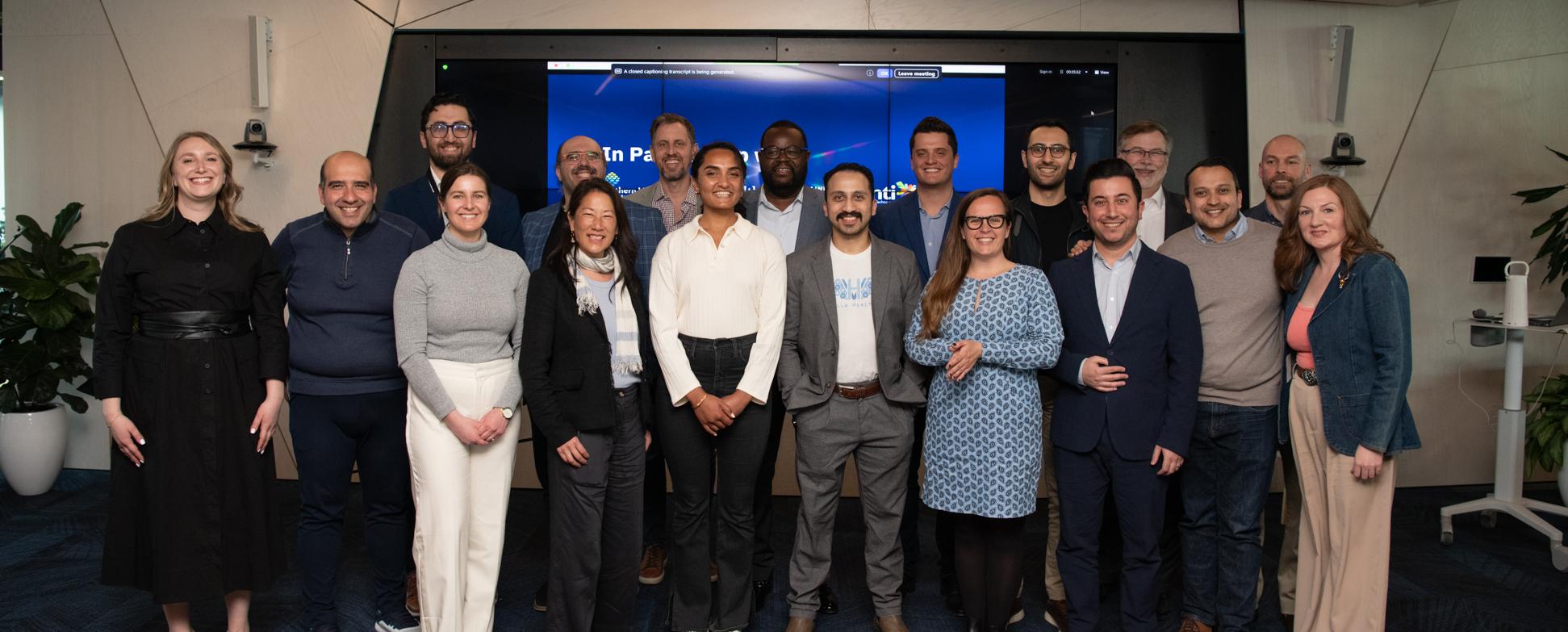
Roux Institute awards $140k in Accelerate Grants to seven healthcare startups
The Roux Institute at Northeastern University has awarded a total of $140,000 in Accelerate Grants to seven healthcare startups participating in its Future of Healthcare Founder Residency program. The grants are designed to help founders overcome the challenges that often prevent early-stage companies from reaching their next milestones, such as limited access to funding for research and product development, complex regulatory requirements, and the need to demonstrate the safety and effectiveness of their solutions.
The Accelerate Grants are intended to support collaborative projects; each grant recipient must partner with a Future of Healthcare ecosystem partner or another Maine-based organization, small business, nonprofit, government agency, or university. Collaborations with Northeastern-based researchers or faculty members are also accepted.
The “valley of death” is a term used to describe the difficult early stages of a startup’s life cycle, when companies have begun operations but have not yet generated significant revenue. The Accelerate Grant aims to help startups bridge this gap and move on to the next stage of their development.

The seven Future of Healthcare Founder Residency recipients of the grants are:
ALTHEA:
Althea is planning a three-month pilot program with Northern Light Health to assess the functionalities of their platform. The goal is to show the efficacy of the Althea platform in a specific gap closure use case by improving the percentage of patient compliance with outstanding mammography orders for breast cancer screenings.
APRIQOT:
Maine CDC will collaborate with Apriqot to explore the utility of the Apriqot platform in characterizing Maine’s population of older adults, their dementia risk, and their social determinants of health. The Maine CDC will receive detailed population models that yield insights to help deploy their limited resources more effectively and efficiently to address the growing burden of Alzheimer’s disease and related dementias.
EMPALLO:
MaineHealth and Empallo have partnered on a pilot to evaluate the opportunity for Empallo’s AI to enhance care and reduce readmission rates for MaineHealth’s cardiac surgery patients.
EMTECH CARE LABS:
EmTech Care Labs will leverage partnerships with Southern Maine Agency on Aging and The Cedars to conduct a beta study to assess the effectiveness of Care-Wallet’s care planning approaches in alleviating family caregiver burden for home-based dementia care.
PRAGMACLIN:
PragmaClin’s pilot study with MaineHealth aims to validate the motor assessment scoring component of the PRIMS platform, utilizing machine learning to rate Parkinson’s Disease progression. The primary objective is to compare PRIMS scores assigned by machine learning with those given by a skilled neurologist during PRIMS testing. Additionally, the study will support the submission of an FDA 510(k) approval package.
RADIOLIFE:
Radiolife and the MaineHealth Center for Applied Science and Technology in collaboration with NorDx are focused on enhancing preliminary data for their FDA Breakthrough Device Designation application. The study involves analyzing urine samples using their Cube Scan technology, enabling them to generate RF signatures and applying AI for detection of glucose and determine its concentration.
STRATOS:
Stratos will provide prototype units of its dialysis vascular access device to University of Maine, where they will be integrated with the university’s proprietary Liquid-Infused Silicone Coatings technology, and thereafter undergo characterization and bench testing in a mock blood vessel model.
The recipients of the accelerate grants expressed their gratitude and excitement about the opportunities the grants will provide.
“The support of $20,000 is a substantial boost for the Radiolife Diagnostic Platform,” said Sergio Ribeiro, founder and CEO of the rapid diagnostic platform startup. “Collaboration is at the core of our philosophy, and we are especially excited about the opportunities for partnership with the MaineHealth Center for Applied Science and Technology and NorDx. This grant not only aids Radiolife, but also strengthens the local health tech ecosystem, fostering innovation that can benefit us all.”
Our aim is to drive healthcare innovation forward. This program and grant opportunity showcase our efforts toward this goal. We’re so excited that the Maine healthcare sector recognizes the potential of these startups. I can’t wait to see the impact these projects and companies will have on our state.

ELENA BRONDOLO
Director of the Future of Healthcare Founder Residency
Elena Brondolo, the director of the Future of Healthcare Founder Residency, stressed that the grants not only support founders, but the needs of Maine communities. “Our aim is to drive healthcare innovation forward. This program and grant opportunity showcase our efforts toward this goal. We’re so excited that the Maine healthcare sector recognizes the potential of these startups. I can’t wait to see the impact these projects and companies will have on our state.”
The Future of Healthcare Founder Residency is a year-long program in partnership with Northern Light Health, Maine Venture Fund, and MaineHealth that offers curated programming, mentorship, and resources to help early-stage healthcare startups succeed. Thank you to all the subject matter experts who have contributed to the success of this community partnership.
The current residency cohort is the inaugural Future of Healthcare class; the program’s second cohort will be announced in April. Be one of the first to meet the new cohort at the 2024 Future of Healthcare Founder Residency Kick Off event, Thursday April 25th, 5pm at The Roux Institute. Register here.
Learn more about the Future of Healthcare Founder Residency here.
